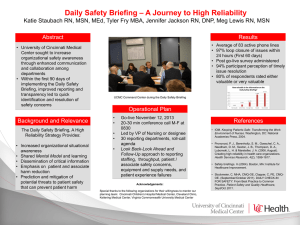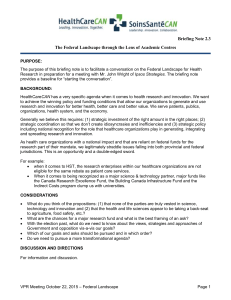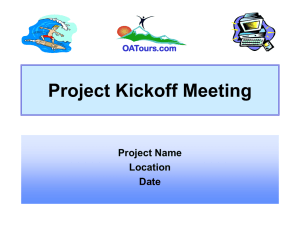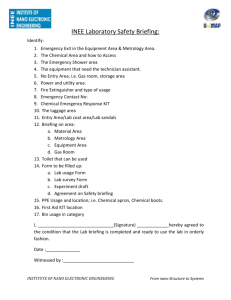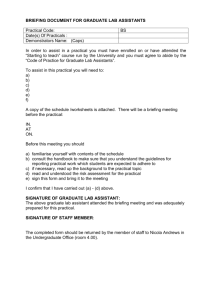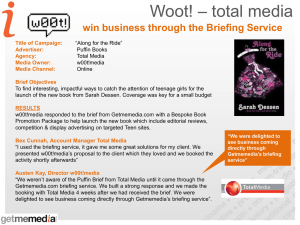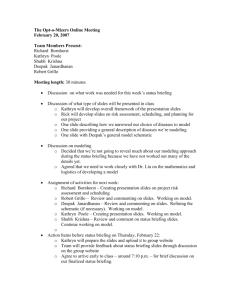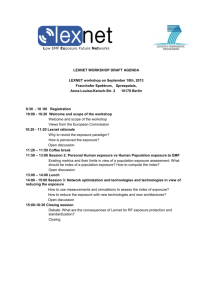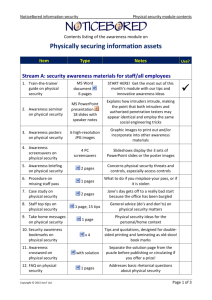Deal with Bad News in a Positive Way
advertisement
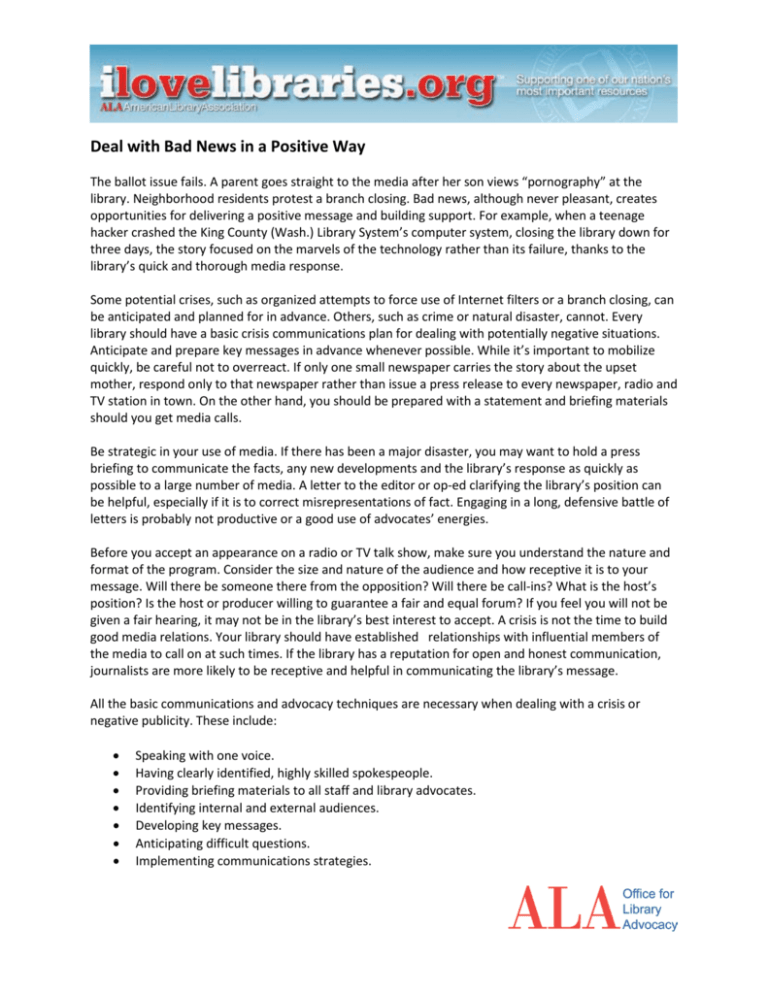
Deal with Bad News in a Positive Way The ballot issue fails. A parent goes straight to the media after her son views “pornography” at the library. Neighborhood residents protest a branch closing. Bad news, although never pleasant, creates opportunities for delivering a positive message and building support. For example, when a teenage hacker crashed the King County (Wash.) Library System’s computer system, closing the library down for three days, the story focused on the marvels of the technology rather than its failure, thanks to the library’s quick and thorough media response. Some potential crises, such as organized attempts to force use of Internet filters or a branch closing, can be anticipated and planned for in advance. Others, such as crime or natural disaster, cannot. Every library should have a basic crisis communications plan for dealing with potentially negative situations. Anticipate and prepare key messages in advance whenever possible. While it’s important to mobilize quickly, be careful not to overreact. If only one small newspaper carries the story about the upset mother, respond only to that newspaper rather than issue a press release to every newspaper, radio and TV station in town. On the other hand, you should be prepared with a statement and briefing materials should you get media calls. Be strategic in your use of media. If there has been a major disaster, you may want to hold a press briefing to communicate the facts, any new developments and the library’s response as quickly as possible to a large number of media. A letter to the editor or op-ed clarifying the library’s position can be helpful, especially if it is to correct misrepresentations of fact. Engaging in a long, defensive battle of letters is probably not productive or a good use of advocates’ energies. Before you accept an appearance on a radio or TV talk show, make sure you understand the nature and format of the program. Consider the size and nature of the audience and how receptive it is to your message. Will there be someone there from the opposition? Will there be call-ins? What is the host’s position? Is the host or producer willing to guarantee a fair and equal forum? If you feel you will not be given a fair hearing, it may not be in the library’s best interest to accept. A crisis is not the time to build good media relations. Your library should have established relationships with influential members of the media to call on at such times. If the library has a reputation for open and honest communication, journalists are more likely to be receptive and helpful in communicating the library’s message. All the basic communications and advocacy techniques are necessary when dealing with a crisis or negative publicity. These include: • • • • • • • Speaking with one voice. Having clearly identified, highly skilled spokespeople. Providing briefing materials to all staff and library advocates. Identifying internal and external audiences. Developing key messages. Anticipating difficult questions. Implementing communications strategies. • Identifying opinion leaders who can help support your position. Tips • • • • • • • • • Focus on the solution, not the problem. Explain what the library is doing to address the situation or say the library is looking for a speedy solution. Apologize if appropriate. “We apologize for any inconvenience to our users. We are doing our best to rectify it as soon as possible.” Make sure you have all the facts before issuing a response. Emphasize to staff and advocates the importance of being forthcoming with relevant information. Prepare briefing materials as quickly as possible. Present the facts, as you know them. If a branch closing was forced by a potential deficit, say so. Let lawyers review any public statement on issues with legal implications but avoid legalese and jargon. Avoid reading official statements, which can sound cold. Have spokespeople memorize and speak your key messages and talking points. Prepare one-page message sheets that include key messages, talking points and answers to the most difficult questions. Offer special briefing sessions and media training for spokespeople who will be on the frontlines dealing with this issue. Stick to the high road. Do not criticize or get personal with your opponent. Do not be defensive. Stay focused on your key message. Broadcast Media To be effective on radio or TV, library advocates must understand the unique needs of each medium. For radio interviews, voice quality and expression are important. Use your voice to project enthusiasm, even a smile. Try to picture the audience and speak directly to them. Viewers have high expectations of how television guests should look. A polished appearance and presentation add to your credibility. Hand gestures make you appear more dynamic and help reinforce main points. Keeping your eyebrows raised makes you appear more open and honest. Avoid the closed body, and do not appear with your arms folded and legs crossed. Keep hands in your lap, with your palms up so you can easily gesture. When dressing, avoid harsh colors such as black, navy, white or bright red. Rich colors such as bright blues, rust, wine or purple are flattering for most women, as are charcoal gray or brown for men. A suit and blouse with an open collar is flattering to most women. Avoid dangling earrings or necklaces that distract from what you are saying. Both women and men should avoid fussy prints in blouses, shirts or ties. Props such as a book, poster or large photo can add interest. Be sure to look at the interviewer— not the audience or the camera, unless you are doing an interview by remote.
